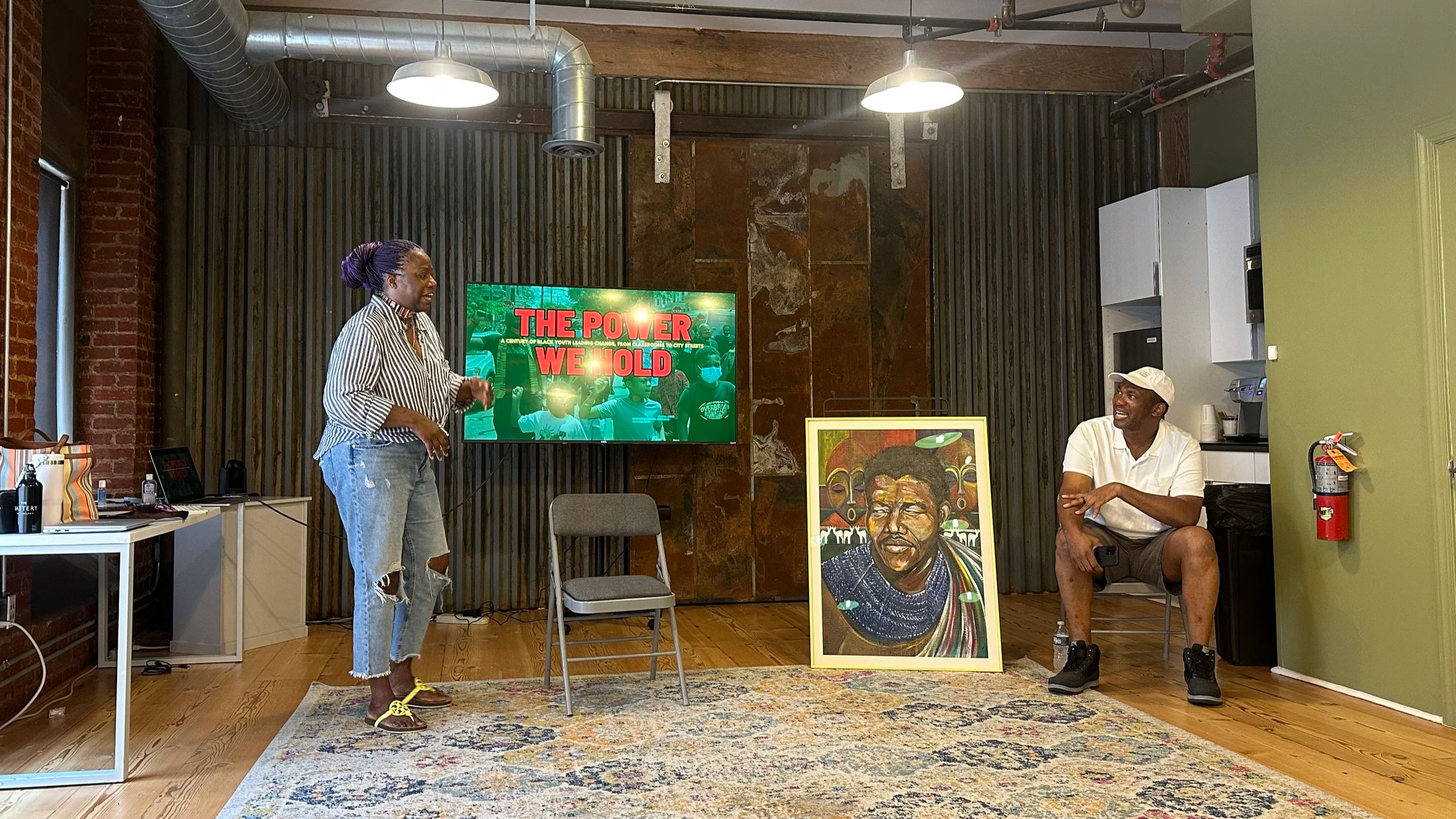July 2025
Healing Through Story: Mandela Day Workshop Brings Art, Movement, and History to Philly Youth
On Friday, July 18, 2025, the Diaspora DNA Story Center (DDSC), in collaboration with the Antiviolence Project (AVP) and the Council for Relationships (CFR), hosted a powerful Mandela Day Creative Art Therapy Workshop titled “Healing Through Story.” Held at AVP’s Community Engagement Room on Parkside Avenue in Philadelphia, the event welcomed 25–30 youth workforce development participants for a transformative experience rooted in storytelling, cultural pride, and collective healing.
Timed to honor Nelson Mandela International Day, the two-hour workshop was designed to engage young people—primarily ages 14–18 enrolled in the Urban Affairs Coalition’s Summer Youth Employment Program—in creative modalities that reflect Mandela’s values: justice, resilience, and community power. Through storytelling, movement, and visual art, participants explored their own narratives and built connections to a larger legacy of strength within the African diaspora.
The session opened with a warm welcome and storytelling led by Monica O. Montgomery, Founder of DDSC. Monica introduced participants to the Montgomery Collection and shared her personal story as a way to explore “intangible inheritance,” ancestral memory, and how storytelling can be a powerful tool for healing. In small breakout circles, youth reflected on moments of grief, pride, and identity, discovering the ways their personal stories are interwoven with their families, communities, and histories. The energy in the room shifted as participants embraced vulnerability and connection, embodying the workshop’s central message: healing begins with honoring your truth.
From there, participants were guided into a movement-based session led by Mthokozisi Nyathi: “Warrior Within: Zulu Movement & Expression.” Drawing from his cultural roots, Mtho introduced participants to the Zulu Kingdom and its traditions of strength, honor, and emotional courage. Through videos, language, and live demonstration, youth learned traditional terms such as Amandla Ngawethu (“The power is ours”), Bayete Ngonyama (“Royal salute to the lion king”), and Mfowethu (“My brother, my kin”)—reminding them of the role language plays in building connection across the diaspora. Movement exercises like Ugukiya (a celebratory stomp dance) and Ndlamu (war cry practice) channeled physical energy into pride and solidarity. Each participant created a personal “warrior sequence,” symbolizing the challenges they face and the strength they carry.
The final component, “The Power We Hold,” was led by artist and educator Serita Lewis, who focused on visual expression and historical awareness. Serita grounded the session in the rich legacy of Black activism and resistance in Philadelphia, highlighting youth-led protest movements and the long-standing role of art in demanding justice. Participants responded to the prompt, “How does it feel to be a Black child at this moment in time?” before designing masks that captured their inner emotions and truths. She also introduced the traditional Ghanaian call-and-response terms “Ago” and “Ame”—used to cultivate cultural awareness and communal listening—connecting participants to diasporic traditions. The workshop closed with personal affirmations and a collective chant: “We have the right and power to create change together.” Through this activity, Serita emphasized that history, community, and presentation are powerful forms of protest and healing.
Throughout the session, trauma-informed clinician Kelly Davis of CFR was present to support participants, ensuring a safe and affirming environment. The workshop closed with a reflection circle where youth shared their artwork, movement pieces, and personal takeaways—leaving with new tools for emotional expression, a deeper sense of cultural pride, and renewed confidence in their power.
This inaugural Mandela Day workshop exemplified how creative expression, cultural knowledge, and community care can nurture healing in youth. By weaving together storytelling, language, movement, and art, DDSC, AVP, and CFR planted the seeds for future collaborations—uplifting the next generation through connection to history, self, and the global Black diaspora.



